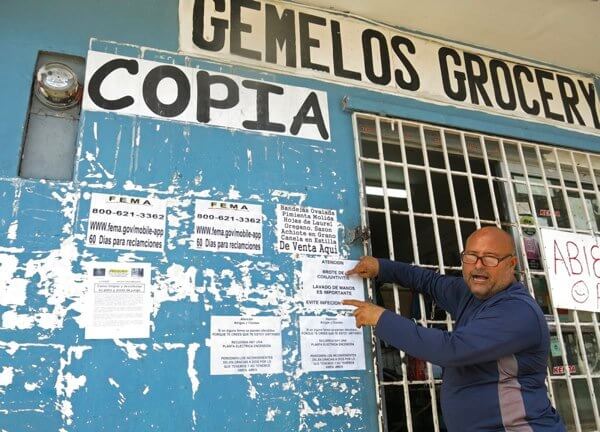By Naeisha Rose
The U.S. Senate decided to proceed to vote Wednesday on two pieces of legislation that was drafted by U.S. Rep. Nydia Velázquez (D-Brooklyn) to support small businesses in Puerto Rico by incentivizing federal agencies to award them contracts.
On July 26, the U.S. House of Representatives approved her legislation, and her office believes it is safe to say that the Senate was expected to pass the bills this week, which are a part of a larger assistance package to help the hurricane ravaged island. The larger package will be debated on for 30 hours.
The goal of the bills are to fuel job growth and to stimulate the economy of the beleaguered island, which was hit by Hurricane Maria in 2017, according to the Puerto Rican-born Velázquez, who represents parts of Queens, including Maspeth, Woodside, and Ridgewood, which has the largest Puerto Rican population in the borough.
“These are common-sense proposals that, I’m proud to say, passed with widespread bipartisan support [from the House],” Velázquez said. “By funneling federal contracting dollars to Puerto Rico we can help local businesses there grow, exactly when the Island most needs help.”
The first provision, Creating Economic Opportunity in Puerto Rico, would allow federal agencies to count double toward their statutory small business contracting goals and procurement dollars awarded to firms in Puerto Rico, therefore incentivizing the government to employ Puerto Rican businesses.
“My provision would channel federal dollars to the island, employing local small firms in the recovery process and on other projects. Federal procurement spending can be a powerful tool for stimulating local economic growth and, right now, Puerto Rico can use all the help it can get,” said Velázquez.
Puerto Rico is currently ranked 50th out of 56 in terms of federal contracts awarded to the United States and its territories, according to Velázquez’s office. In fiscal years 2014 and 2015 the total awards contracted to the island for small businesses was less than $85 million.
The second piece of legislation, Empowering Employees by Supporting Cooperatives, would assist employees seeking to own a stake in their own workplace, which would make it easier for small firms to utilize the Small Business Administration’s program to finance their transition to employee-owned models such as an Employee Stock Ownership Plan or a cooperative.
“We know that workers at employee-owned enterprises tend to be paid better and achieve higher rates of financial security,” said Velázquez.
ESOPs and co-ops have a track record of success that allows companies with the employee-ownership model to see an increase in productivity by 4 to 5 percent, according to Velázquez.
Velázquez’s second provision would also help employee-owned businesses access capital to cover the high costs of becoming an ESOP, which are often upwards of $80,000.
“As an upsurge of baby boomer business owners move towards retirement, this bill takes steps to help employees retain their jobs by gaining a stake in their company’s ownership,” said Velázquez.
Reach reporter Naeisha Rose by e-mail at nrose




































